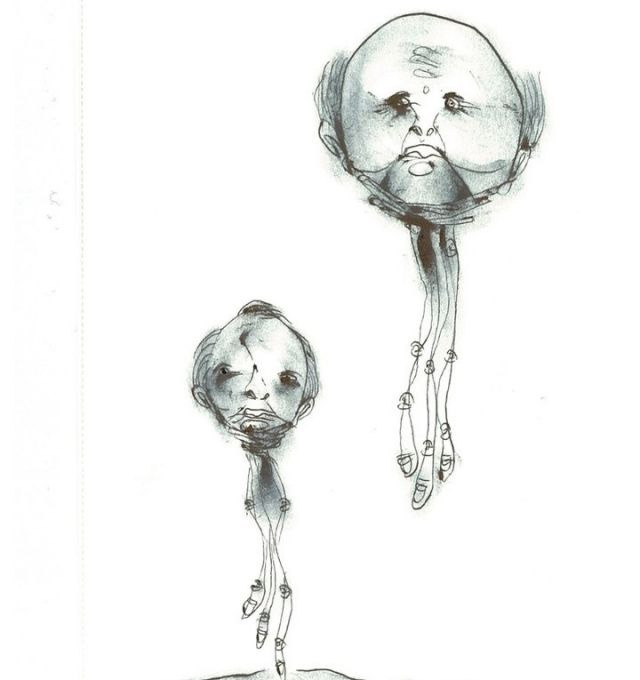Franchising
Maddd Science

Sequels, prequels, reboots, side-quels, and the shared universe are all different directions franchises can go now. Also the preboot, as seen in Hannibal, Bates Motel, and that new MacGyver show. This issue looks at a few ways franchises are continuing to spread their tentacles.
Fun fact: Alone with the MTV News article I shared last week, this first article is the second one in as many weeks to be published on a website that wasn't defunct when I first found the link, but is now. Wait did I say fun? That's probably not the word. Anyway, here's a look at the "ancillary film," a new category that has leapt fully formed out of Hollywood's collective consciousness.
The New Sequel
Mallory Andrews, Movie Mezzanine
Much has been made of the “pointlessness” of both Rogue One and Fantastic Beasts in reviews, and certainly as pieces of storytelling they are entirely redundant. They add no further insight to the films that came before in their respective franchises. They are indeed pointless, save for the obvious commercial value in generating more revenue from an existing brand, though that’s hardly a betrayal of the “artistic purity” of the original films in either franchise. That is, Rogue One is hardly the first Star Wars film designed to sell toys. If ancillary installments are the new franchise filmmaking trend, then it appears that “pointlessness” is entirely the point, an excuse to spend more time with a beloved fantasy.
The best accidental franchise ever is probably Fast and Furious. Against all odds, director Justin Lin was able to turn the fact that none of the first four films featured the exact same cast into an advantage by acting like it was a shared universe just waiting to come together Avengers-style in Fast Five. But no one talks about the bizarre way all the films are titled. So I did.
The Glorious Anti-Logic of the ‘Fast & Furious’ Naming Scheme
Me, Medium
The Fast and the Furious: Tokyo Drift opted for a subtitle, a trend that every film since ignored. The fourth film dropped a few articles from the original title to arrive at Fast & Furious. The next one, Fast Five, continued dropping words. Somehow the next two films, Fast & Furious 6 and Furious 7, managed to find new combinations of words and numerals to identify themselves with. At this point, these film titles define the franchise on a meta level: they are as frenetic and jumbled as the plots of the films they headline.
Also, remakes are now so common now that remakes specifically designed to be super similar to the original are considered a fresh idea.
Welcome to the Remake Kingdom
Drew Taylor, Vulture
I wondered about the danger of consistency becoming more important than quality. (As some of the wildly varying reviews of Beauty and the Beast can attest, there are differing opinions on how well they pulled it off.) Is making the same movie again, but with actual actors, enough, or to quote Beauty and the Beast, is it important to give audiences something there that wasn’t there before?
And the end result of an over-franchised movie landscape is a more niche, more sci-fi TV one.
The Great Sci-Fi TV Boom of 2018
Alison Herman, The Ringer
With the exception of Star Trek: Discovery, none of these series are spinoffs from the sprawling universes that loom over so much of media, but instead what has grown in their shadow. Television is now better equipped to cater to niche interests than ever before, incentivized by the possibility that those interests may not prove niche at all. The result is a bumper crop of science fiction dramas that may not be uniform in quality, but collectively seizes the opportunities afforded by technology, money, and willpower rushing into one of television’s core constituencies.
Internal Memo to the Staff of a Magazine in a Romantic Comedy
Monica Heisey, The New Yorker
Due to overwhelming demand, we’ve allocated the west conference room as a waiting area for male best friends who can no longer keep quiet about their real, probably reciprocated feelings. Please tell any friends who have been right in front of you this whole time that they may visit the designated area during lunch or after regular business hours.
If nothing else, this surprisingly comprehensive history of the song "Surfin' Bird" is a good reminder that kids in the 1963 also loved dumb memes.
Oh? Haven’t You Heard?
Of the song, Dick Clark said: “If you were to review back and think of all the strange and unusual sounds of 1963, I guess this one would have to win an award of some sort.”
The Oulipo of the 1980s? Why it’s time to reappraise the humble Choose Your Own Adventure book
Darran Anderson, Prospect
When a technology is surpassed, and we can see the book as a form of technology, it is rarely rendered entirely obsolete. Often, it becomes a niche concern or finds that its very limitations are strengths. The simplicity, clarity and imaginative capacity of literature offers something that games, which immerse the player in immaculately-rendered environments, can lack.
Next Week on Maddd Science: eh idk